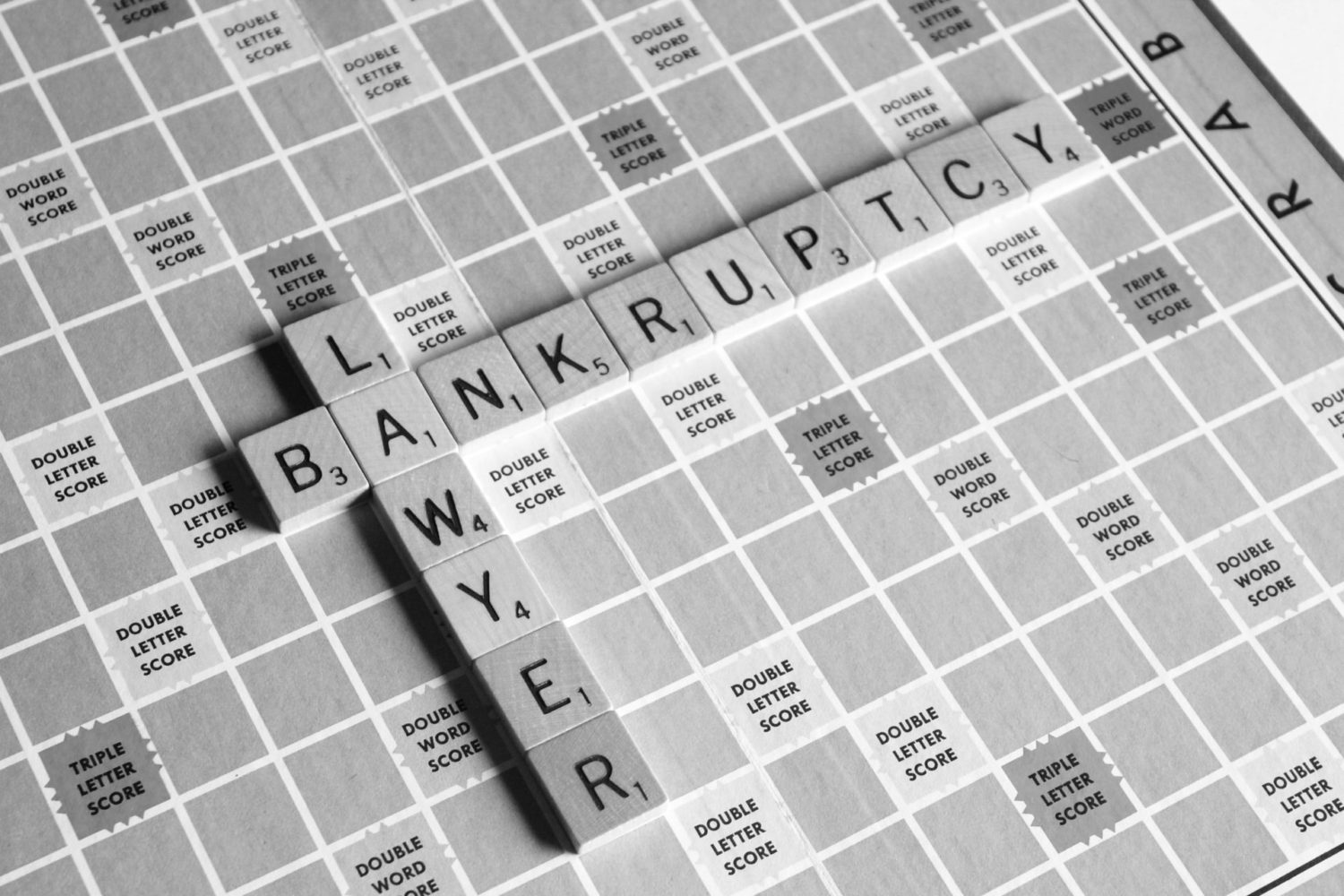
The Chapter 13 repayment plan is the essence of a Chapter 13 bankruptcy case. The plan specifies how much payment will go to each creditor, how long the plan lasts, the value of the debtor’s properties, and many more.
The Chapter 13 repayment plan needs to be confirmed by the bankruptcy court for the case to proceed. You should know such things as the disposable income test and other factors to help you understand how the Chapter 13 repayment plan is calculated. The creditors, as well as the Chapter 13 bankruptcy trustee, can object to certain aspects of the plan. Typically, you will make monthly payments to the bankruptcy trustee.
The trustee will pay your creditors on your behalf and collect a commission based on the amount paid out under your plan. You must make all of your payments to complete the plan and get a discharge of the remaining balance on qualified debts.
Similar to the filing of Chapter 7 bankruptcy, you’ll need to fill out forms. In the documents, you’ll list your income, expenses, properties, and debts. You must also file the forms, paperwork, and workable payment plan with your local bankruptcy court. That said, Chapter 7 is very different than Chapter 13 bankruptcy.
You also need to file the following:
- Your tax return the previous year. See the IRS bankruptcy tax guide for more details.
- Certificate showing you have completed credit counseling
- Proof that you’ve been filing your tax returns (for the last four years)
Chapter 13 Repayment Plan
While your bankruptcy attorney can provide expert guidance on how you can move forward, we have listed down five essentials so you’ll know what to expect.
1. Often, Not All Creditors Will Be Paid Fully.
While some of your creditors will receive 100% of what you owe them, others will receive a smaller percentage (in some cases, nothing at all!). Below is a breakdown of what you are required to pay under Chapter 13 bankruptcy.
The Chapter 13 bankruptcy forms are complex, but you can take a free Chapter 13 monthly payment calculator to estimate your Chapter 13 repayment plan.
Administrative claims
- Your filing fee
- Commission of the trustee (can range from 3% to 10% of each monthly payment)
- Attorney’s fees
Priority debts
- Child support and back alimony
- Tax debts (including federal and state income taxes)
- Salaries, commissions, and wages owed to employees
- Contributions owed to an employee benefit fund
If you want to keep your house, mortgage defaults need to be paid fully. Other secured debts have to be paid 100% if you intend to keep your property. Missed car payments belong in this category.
Unsecured debts are paid from 0% to 100% of what you owe. The exact payment will depend on:
- The non-exempt property’s total value
- The amount of disposable income each month that goes to your debts
- How long the plan lasts
2. You Don’t Have to Hand Over Any Assets.
While you are not required to surrender any assets, it does not mean that you get to keep more than those who file for Chapter 7 bankruptcy. Here’s how properties are treated in both Chapter 13 and Chapter 7 bankruptcy:
Chapter 7 bankruptcy
You need to surrender your non-exempt property to the trustee. The trustee will sell it and distribute the proceeds to the unsecured creditors. However, you get to keep the property that is exempt.
Chapter 13 bankruptcy
The Chapter 13 bankruptcy trustee won’t sell your property in a Chapter 13 case. Since you get to keep your property, you will pay your unsecured creditors at least the non-exempt property value.
The owner of unsecured debt is called an unsecured creditor. Unsecured debt is not guaranteed by collateral. Some of the most common types of unsecured debt include:
- Department store balances
- Major credit cards
- Personal loans (payday loans)
- Utility bills
- Club memberships
Government-backed student loan obligations and past-due income taxes (unless old) are considered unsecured debts. However, some special rules apply that allow creditors to take steps against creditors without going to court.
Spousal and child support obligations also fall into this category. These kinds of unsecured creditors have ‘priority’ claims that will still exist even in bankruptcy. In other words, you are still required to pay off the entire balance of those debts in your Chapter 13 payment plan.
3. Your Repayment Plan Must be Confirmed Before it Becomes Permanent.
Part of filing a Chapter 13 plan includes submitting a repayment plan that outlines how you want to repay your creditors. The Chapter 13 trustee and creditor can object to the plan if it appears like someone is not paid the right amount. The judge, however, has the final say. The judge will either reject or approve the plan at the confirmation hearing.
What happens at the confirmation hearing
In the confirmation hearing, the bankruptcy debtor and objecting parties (if there are any) will explain to the judge why their version should be confirmed and finalized. The argument will often take place once the written objection has been filed. Even if there is no objection, the judge might also ask questions about the plan.
Attending the confirmation hearing
Whether you are required to attend will depend on the judge and the practices of the local court. In several districts, however, you won’t need to appear since your lawyer will be there and can argue on your behalf.
Some judges will also require debtors to be present during the confirmation hearings to answer some questions. In other districts, if no one objects to your plan, the court might not hold a meeting and will ask that a confirmation order is submitted for the court’s review.
4. If Facing Dismissal, You Need to Speak with the Chapter 13 Bankruptcy Trustee.
Completing a Chapter 13 repayment plan is not always easy. If you miss your plan payments, the creditor or Chapter 13 bankruptcy trustee can ask the court to dismiss your bankruptcy case. Fortunately, there are some options available that can help you save your bankruptcy and obtain a discharge.
There are instances when debtors miss plan payments due to other financial emergencies. However, most debtors can get caught up if granted sufficient time. If you are facing dismissal, your first move should be to speak with the Chapter 13 trustee. Your goal should be to reach an agreement that allows you to make your payments current by a specific date.
5. Request for a Hardship Discharge if You Cannot Complete Your Repayment Plan.
If you can’t continue with your Chapter 13 bankruptcy, you might be eligible for a hardship discharge. The court will assess and analyze your financial situation. However, the best interest of your creditors is also considered before a hardship discharge is granted.
If debtors can’t make or modify the monthly payments, converting to Chapter 7 is an option they can look into. However, you need to qualify by being below the income limit for a Chapter 7 discharge (most courts will require debtors to pass the Chapter 7 means test). You can find the means-testing information here and you can also take a bankruptcy calculator to help you estimate qualifications. It is also important to remember that it won’t spare you from paying your priority debts.
6. Your Chapter 13 Payment May Be Too High Leading to Dismissal
A Chapter 13 bankruptcy has a monthly plan payment as stated above. The plan payment can be okay in many situations, but there are other situations where the Chapter 13 plan payment is too high. This can lead to a Chapter 13 dismissal where the creditors can begin pursuing you again for the debt.
There are numerous Chapter 13 horror stories that you can consider ranging from a single mother who has to work 2 jobs to afford her Chapter 13 plan payment to an individual paying 60% of his take-home pay each month towards his Chapter 13 plan.
Wherever you are in the process, it’s important to consider whether you will make extra income in the Chapter 13 or whether you see any foreseeable changes in the next 3 or 5 years.
What Are Your Home Loan Options During Bankruptcy
If you’ve filed for bankruptcy, there are several steps you must take to ensure that your FHA (Federal Housing Administration) loan is paid on time each month. You can check this FHA loan information to find out more about this financing option.
First of all, if your bankruptcy is approved, you’ll need to apply for an FHA mortgage loan. If approved, there are three different options:
- An adjustable rate mortgage (ARM) is a type of FHA mortgage loan. If you have a standard adjustable-rate mortgage (ARM), you may qualify to have your adjustable rate loan modified so that your ARM remains fixed.
The modification procedure is more complicated than it sounds to the point that it requires a lawyer. You’ll have to explain to the attorney the circumstances of your FHA loan to make it easier on them.
- You may also qualify for an open-ended adjustable rate loan. This type of FHA loan allows you to refinance the same house but with a different interest rate or term. It works out well for borrowers who have experienced a change in their income or their financial situation.
An adjustable-rate home loan might be your best option, but you may still need to have your home appraised by a real estate agent to see if you can qualify for an adjustable-rate mortgage.
- Another option is a fixed-rate loan. A fixed-rate loan is much like an adjustable-rate loan except that the initial monthly payment will be fixed at a specific amount. If your monthly income or expenses change, you won’t be able to adjust your mortgage. The fixed-rate loan will usually have a term of five to thirty years or until the property is sold.
A home loan through the FHA or any other type of loan, for that matter, is not “guaranteed.” There are always risks, especially with something as large as a home loan. FHA mortgage lenders will require you to pay down your debt and make your monthly payments on time before they’ll even consider approving you for another FHA mortgage. If you fall behind on your mortgage payment, you’ll be put under a lender-administered foreclosure process.
Conclusion
The Chapter 13 repayment plan can be challenging to navigate without the help of a seasoned bankruptcy lawyer. You can get proper guidance so you’ll know how to move forward and your best interest is protected at all times.


